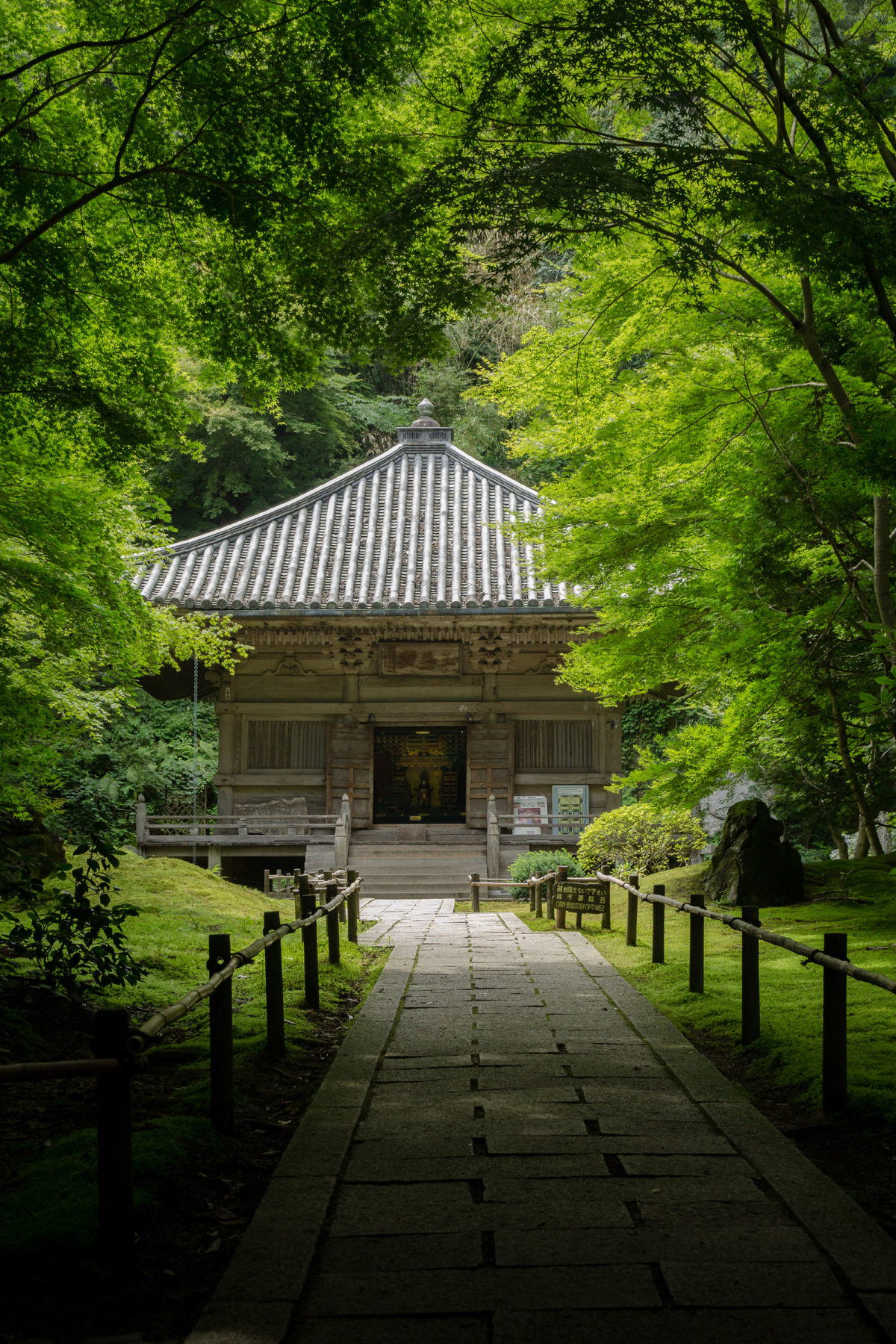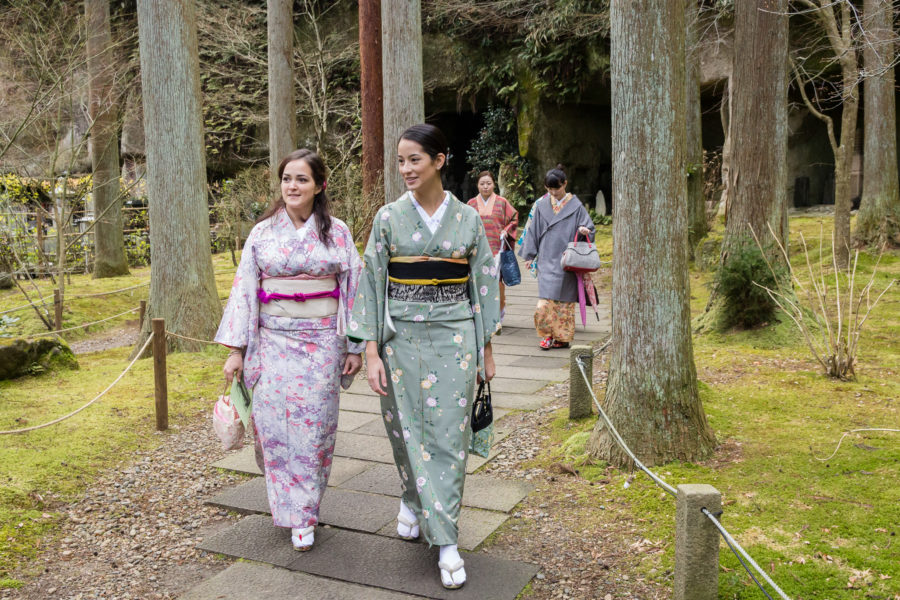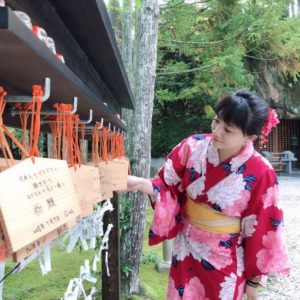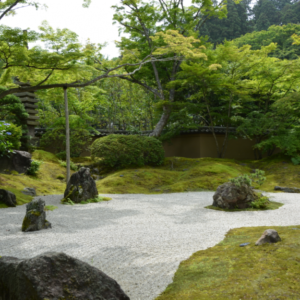Photo by Roger Smith

Photo by Roger Smith

Photo by Engkarat Techapanurak

-
-
Entsuin Temple is rich with stories from Matsushima’s samurai past. It was founded in 1647 to honor Mitsumune Date, who had been in line to become the third ruler of Sendai. Mitsumune was said to have excelled at his studies and had the potential to be as great a ruler as his grandfather, the legendary samurai Masamune Date. However, he died suddenly at age nineteen and never fulfilled his destiny. His father Tadamune, the second ruler of Sendai, built Entsuin in his honor.
The Japanese gardens of Entsuin Temple are a peaceful oasis at the center of Matsushima’s popular waterfront area. The rock garden near the entrance symbolizes the islands of Matsushima Bay. Make your way up a weathered stairway, formed from the same soft stone as the Matsushima islands, to a peaceful mausoleum surrounded by trees. It is dedicated to Mitsumune, who is depicted as a warrior on horseback. He is surrounded by seven statues representing the retainers who followed their master in death.
The vibrant ornamentation on the mausoleum reflects the ambitions of an era that had come to a close. A generation earlier, the Sendai Domain had sent an emissary to Rome to open up trade with Europe. They returned to Japan with artifacts, including a painting of a European rose. Close inspection of the patterns on the mausoleum’s interior show familiar European symbols including crosses, hearts and spades, and a replica of the rose painting. As the national government began to ban Christianity and close Japan to the world, Sendai’s nascent international trade could not continue. The mausoleum doors with foreign imagery were closed, and the contents kept secret for centuries. Today, in honor of this unique history, Entsuin has a Western rose garden. The rose garden is at its best in early summer (usually late May to mid-June), while in autumn crowds flock to the temple for the annual autumn leaves light-up event.
Entsuin also offers a number of activities and other attractions. Near the entrance is an Enmusubi Kannon (a matchmaking deity) where visitors can write their wishes on a small doll and dedicate it to the Kannon. Visitors can also try making an udenenju prayer bead–bracelet, no reservations needed. The temple grounds also house three restaurants, including Ungai, which serves Date shojin cuisine, an indulgent spin on the traditional shojin ryori diet of Buddhist monks.
Entsuin is my favorite place in Matsushima. I enjoy the tranquil beauty of its traditional Japanese garden with its moss and picturesque pond. Its beauty changes with the seasons; fresh green in spring, flowers in summer, stunning colors in fall, and if you are lucky, a dusting of snow in winter.
WEBSITEhttp://www.entuuin.or.jp/
-








